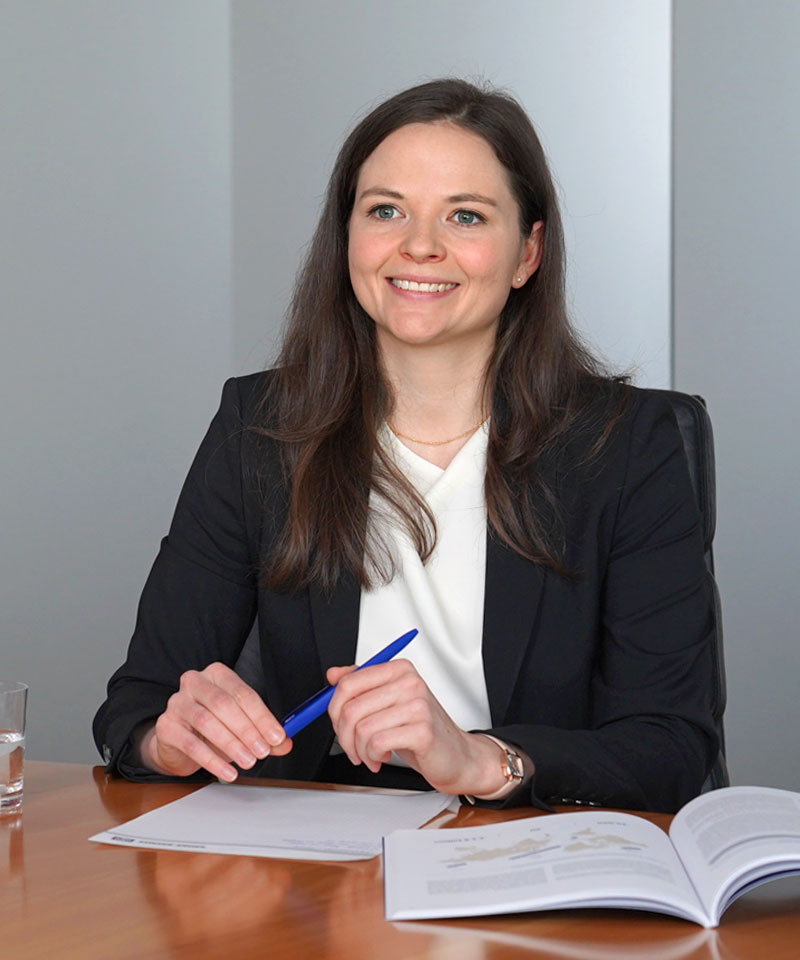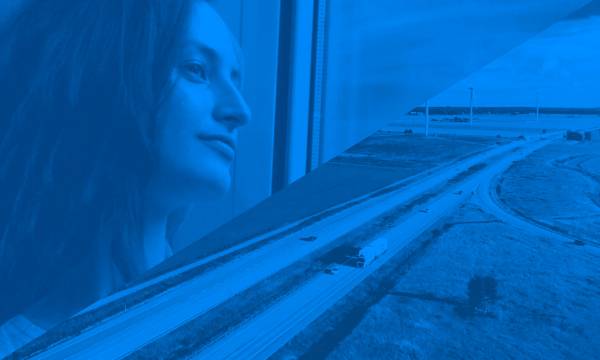
Focus on Sustainability: Intergenerational Dialog

When two different generations at Knorr-Bremse talk about sustainability … it becomes clear that everyone is driven by the same vision: They want to contribute to a livable world with sustainable mobility at a responsible company. However, do different approaches, attitudes and paths lead there? Executive Board members and Katharina Serfas, a young sustainability professional, explore this in a conversation together.
Frank Markus Weber: It is my privilege to welcome no fewer than two new members to the Knorr-Bremse family. Ms. Serfas, you have been a sustainability professional at Knorr-Bremse since October 2022. Our new CEO Marc Llistosella, who has led the company since the beginning of 2023, is also here. As the Executive Board member responsible for sustainability, I would be interested in knowing if sustainability was an aspect that encouraged you to decide on Knorr-Bremse?
Marc Llistosella: ‘I can really make changes there’ is the main thing I thought when I decided on Knorr-Bremse’s offer. As CEO, I want to set clear, long-term goals and achieve them with the Executive Board and all the employees, including sustainable corporate governance. Sustainability is a fundamental layer of our corporate strategy. On a side note, I have recently been involved in start-ups, some of them in the field of e-mobility. As a result, I feel right at home with solutions for sustainable mobility.
Frank Markus Weber: If you were involved in start-ups, you will definitely be familiar with intergenerational working environments and collaborating with younger generations in particular. Young coworkers are creating an atmosphere of change; what do you think about that, Marc?

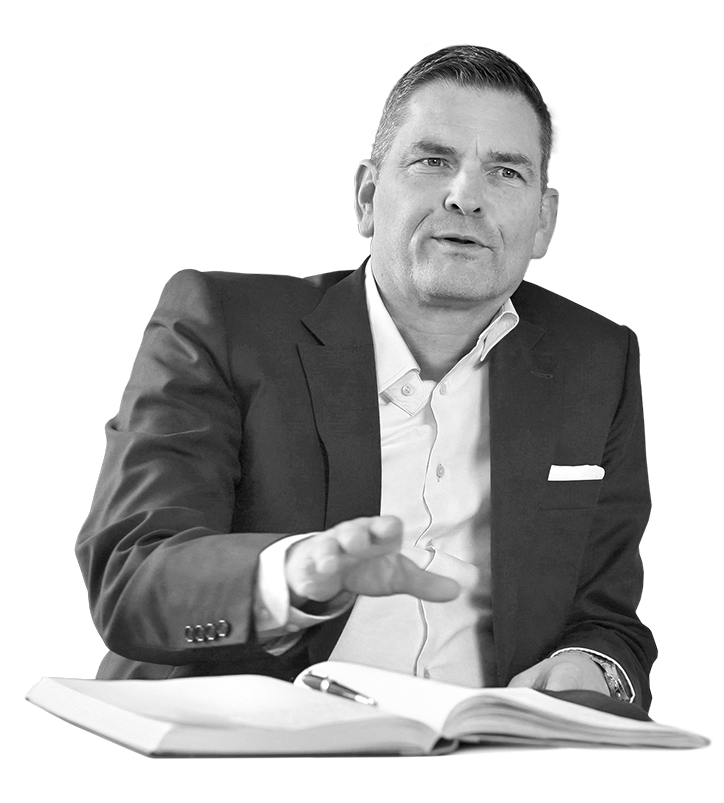
“Millennials legitimately have high expectations and challenge us with disruptive ideas.”Marc Llistosella, Chief Executive Officer
Marc Llistosella: Millennials legitimately have high expectations and challenge us established figures with disruptive ideas, digital know-how and rapid implementation. Companies that do not address these topics and do not offer any answers will not survive, and that is because the young generation represents our stakeholders, our employees and our investors of tomorrow – and today. Much like Ms. Serfas, whom I would like to welcome now.
Katharina Serfas: I do indeed have high expectations – of myself especially. After completing my master’s degree in global studies, specializing in business and the environment, I knew for certain that I wanted to work in sustainability management in the private sector. I want to do something with purpose and go home thinking, ‘Today I have contributed to increased sustainability.’ At Knorr-Bremse, I have seen possibilities to contribute to sustainable corporate development and ultimately to sustainable mobility. As a young professional, you approach things in a very expectant and idealistic way.
Dr. Claudia Mayfeld: As Chief Human Resources Officer, I am of course interested to know if you had a rather hard or soft landing in the reality of business? (smiles)
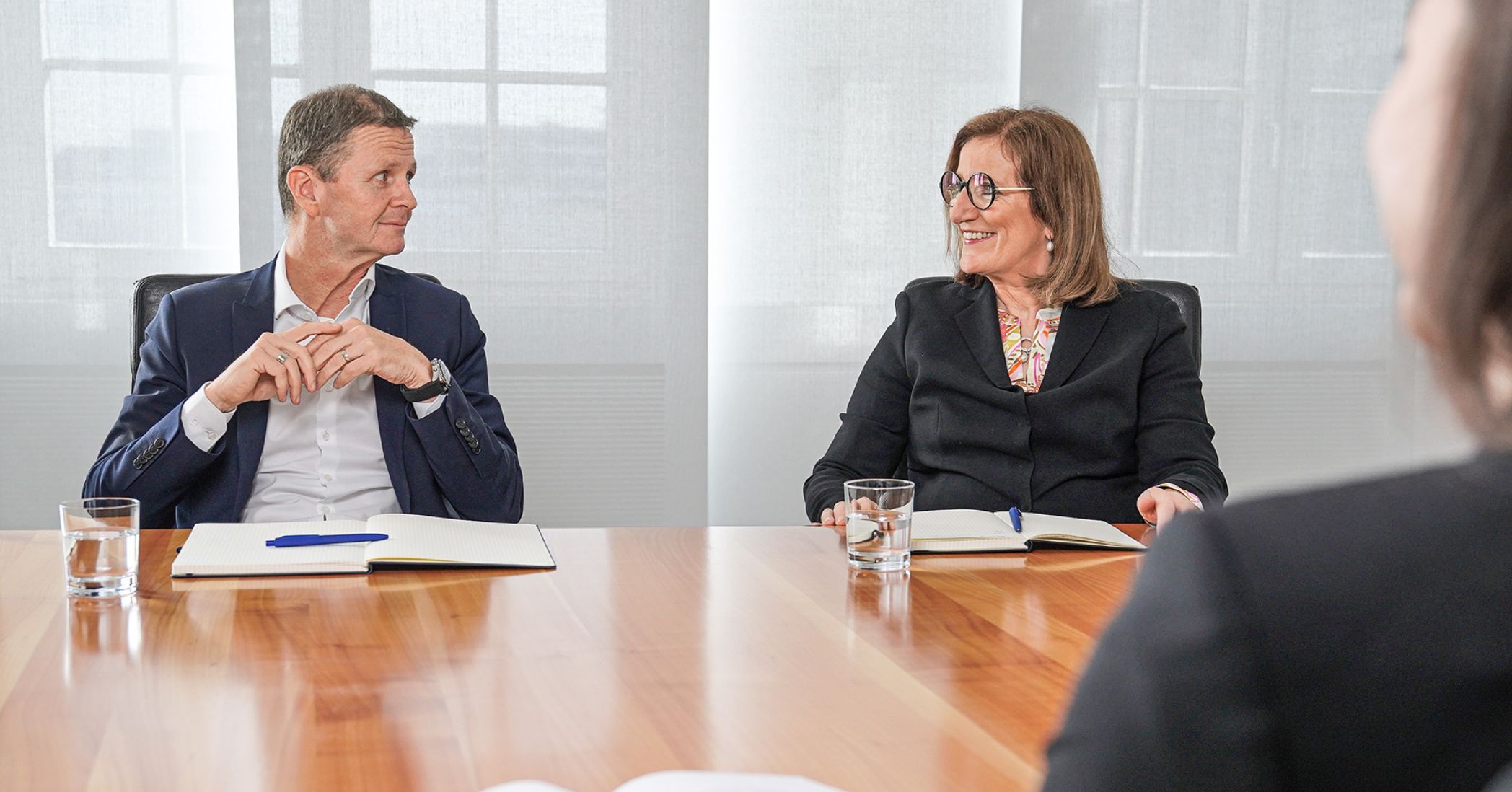
Katharina Serfas: I landed on both my feet, on solid ground. Knorr-Bremse has the structures in place for efficient sustainability management. Sustainability is in fact already integrated in many processes and decisions. I’m thinking of the Climate Strategy 2030, of course, but also of the supply chain, EcoDesign and Remanufacturing. There are clear processes, clear targets and a lot of support from the company’s departments. It is what I had expected.
Claudia Mayfeld: Yet I can see a small “but” in your expression …?
Katharina Serfas: There is still room for improvement in some of the objectives. By that I mean the depth of some of the key indicators or time frames, or just how binding an ambition is. However, there are two things that have already become very clear to me in this context. First, digital transformation and data collection in a global corporation is hard work. Second, I see that the necessary digital structures – if they do not already exist – are being installed step by step. This is an important motivation for me – I can feel that progress is being made and I can influence it.
Frank Markus Weber: Indeed. We are continuously working to further integrate sustainability consistently into the Group-wide process landscape. And we need to give sustainability even more attention. By the way, I'm counting heavily on you on this, because I also see you as a networking sustainability influencer within the company. Do you agree on that?
Katharina Serfas: I never really wanted to be an influencer but in this context I will happily take on the role (laughs). I have definitely met a number of colleagues, for example in purchasing, product development and compliance, who are passionate sustainability ambassadors, always incorporating sustainability aspects into their day-to-day work.
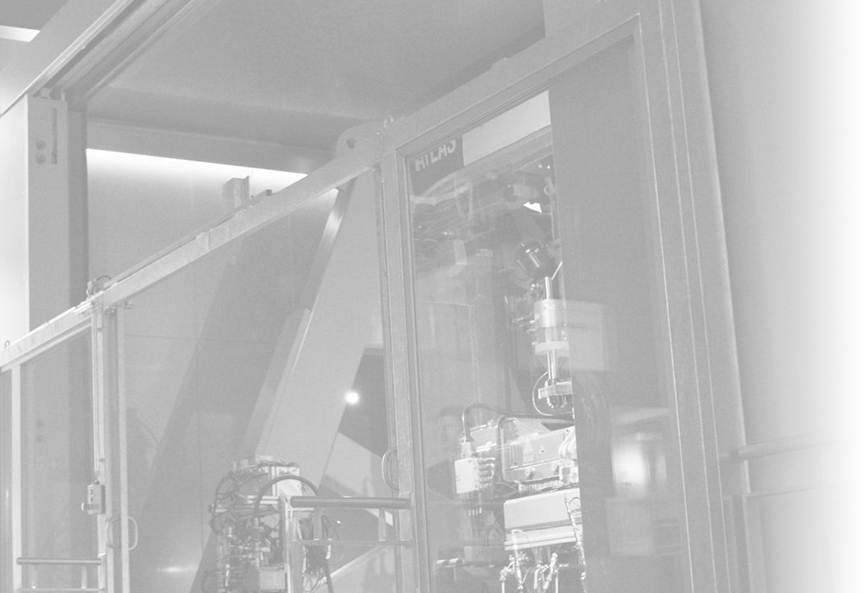
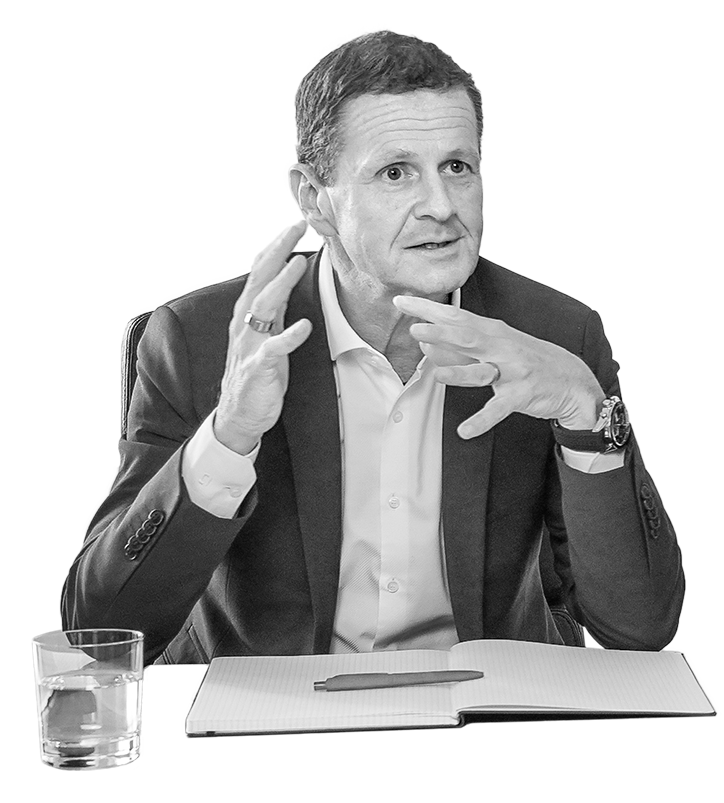
“With three different sustainability-linked financing instruments alone, we have clearly demonstrated the importance that Knorr-Bremse assigns to sustainable business practices.”Frank Markus Weber, Executive Board member responsible for Finance, Accounting, Controlling, Taxes, Treasury, M&A, Sustainability and Investor Relations
Frank Markus Weber: It is precisely this holistic approach that we want to reinforce. I can say on behalf of the entire Executive Board, with full conviction, that we are committed to sustainability. This can be seen in our ESG-linked remuneration system for the Executive Board and management, for instance. However, beyond remuneration, Knorr-Bremse also did much to develop its ESG focus in 2022. With three different sustainability-linked financing instruments alone, we have clearly demonstrated the importance that Knorr-Bremse assigns to sustainable business practices. The fact that we will broaden our climate targets to Scope 3 this year and have them validated by the SBTi is confirmation of this.
Claudia Mayfeld: In mentioning remuneration and the capital market, you have raised some key drivers for further enhancing the importance of sustainability within the company. The basis of success is always good, responsible corporate governance. Ensuring this is our top priority. It is essential for us as a listed company and for our stakeholders. In 2022, for example, we conducted a risk analysis of our suppliers and processes in relation to human rights due diligence. Doing this on a yearly basis in the future, we will be able to meet requirements such as those under the German Supply Chain Due Diligence Act. Aspiring for this level of integrity strengthens our market position in the long term. That extends through to recruitment, too, as the younger generation values having a responsible employer. Isn’t that right, Ms. Serfas?
Katharina Serfas: Young people certainly check companies particularly thoroughly with regard to their sustainable behaviors. At the same time, we also look at things more critically. We believe that a high standard of living should no longer be at the expense of future generations. We have to leave the behavioral and economic patterns of unlimited resource consumption behind us. Unfortunately, however, only some parts of the economy, society and politics have understood that things cannot continue like this anymore. This is precisely why the critical and demanding view of the younger generation should be seen as a great opportunity and an important impetus for constructive discussions.

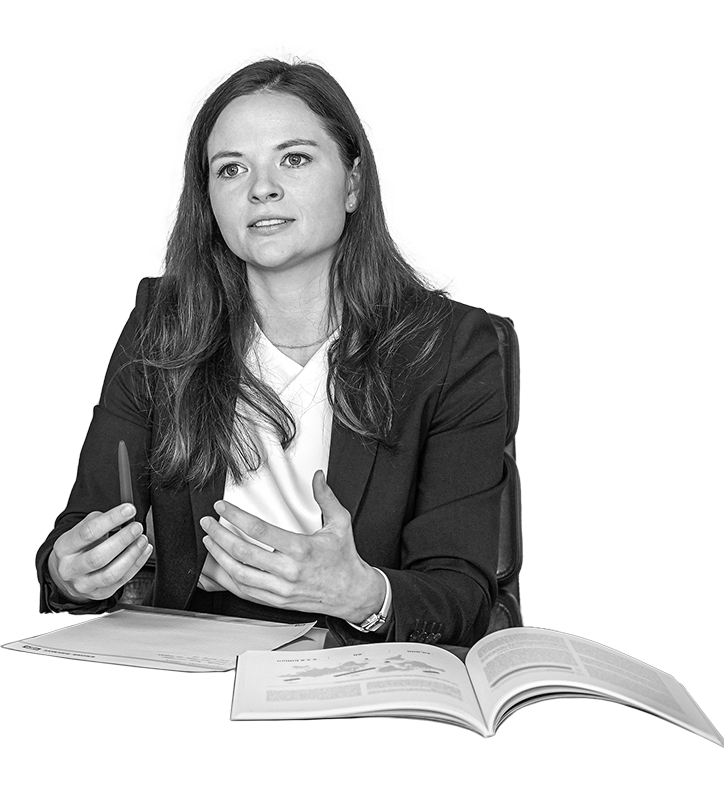
“At Knorr-Bremse, I have seen possibilities to contribute to sustainable corporate development and ultimately to sustainable mobility.”Katharina Serfas, Sustainability Professional
Marc Llistosella: Does it annoy you that the presentation of your generation is often reduced to climate protection and work–life balance?
Katharina Serfas: Training, work–life balance and flexible working hours are definitely important to me. Nonetheless, that doesn’t go far enough: It’s about purpose, products, environmental protection and social responsibility. Every generation has its idealists, realists and opportunists. Nonetheless, it was clear to me from the start that I would have to deal with the market, products and the commercial environment in order to discuss sustainable transportation strategically.
Marc Llistosella: During my first few months at Knorr-Bremse, I have also become very closely acquainted with our products – products that always seek to contribute to sustainable mobility – during numerous conversations and many site visits. These products consist of extraordinarily energy-efficient and safe system solutions for rail transportation. Or paving the way for intelligent freight trains with Digital Automatic Coupling. All of this is absolutely fascinating. When it comes to commercial vehicles, I have extensive expertise in technology and management based on my experience as a manager at Daimler Truck. The e-mobility solutions that I have been able to see here at the eCUBATOR innovation center show me something: With our specialists, their knowledge, and the agile development processes, we can offer vehicle manufacturers innovative and suitable solutions for the transformation in transportation and mobility.
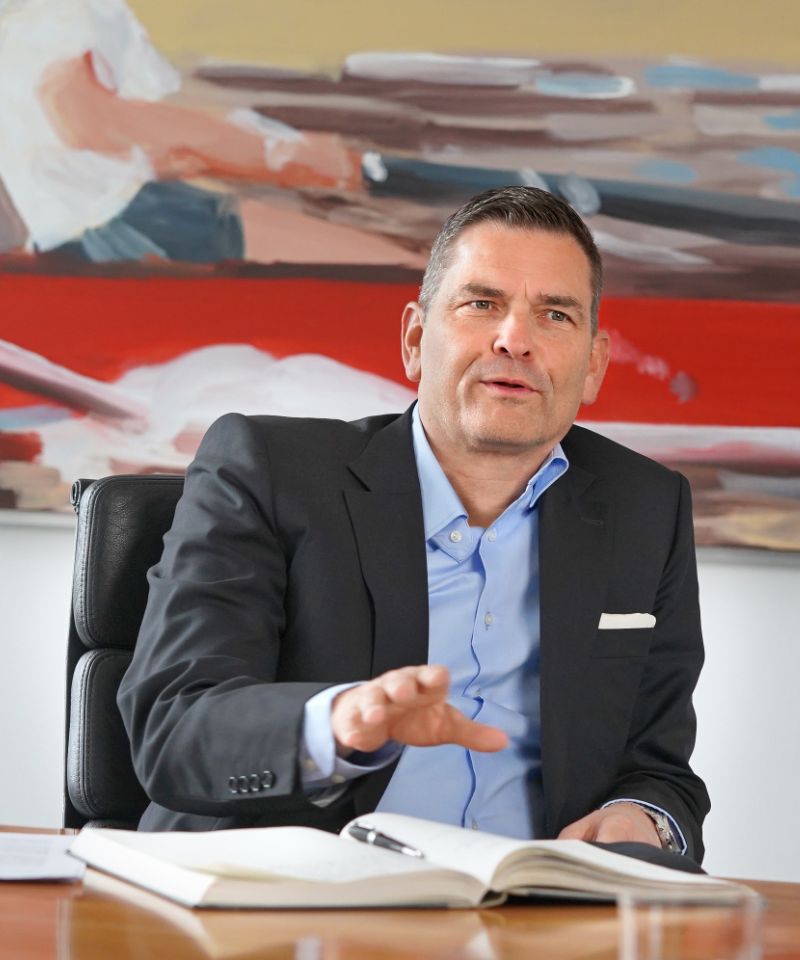
Claudia Mayfeld: You just mentioned innovation, and that is closely connected to specialists. We need exactly these skilled workers to achieve our goals and for digital transformation. We also need to train our employees accordingly. We laid the foundation for a targeted, global recruitment process in 2022 as part of our OneHR project. Additionally, we want to support women’s careers and generally increase their representation in the company. On the subject of equality, we have already set quite a lot in motion. This includes the introduction of gender quotas for the entire workforce and for management levels 1–4, an internal women’s network and further enhanced development programs.
Katharina Serfas: I have already joined Knorr-Bremse’s women’s network in Munich. This community idea inspires me. A very experienced manager supervises me in the network’s mentoring program and I can already see that this exchange is advancing my professional and social skills. Nevertheless, I still wonder if the share of women will increase, especially in technical fields? Group photos of Knorr-Bremse – as in politics or the economy – with 50 men and one or two women really should be history...

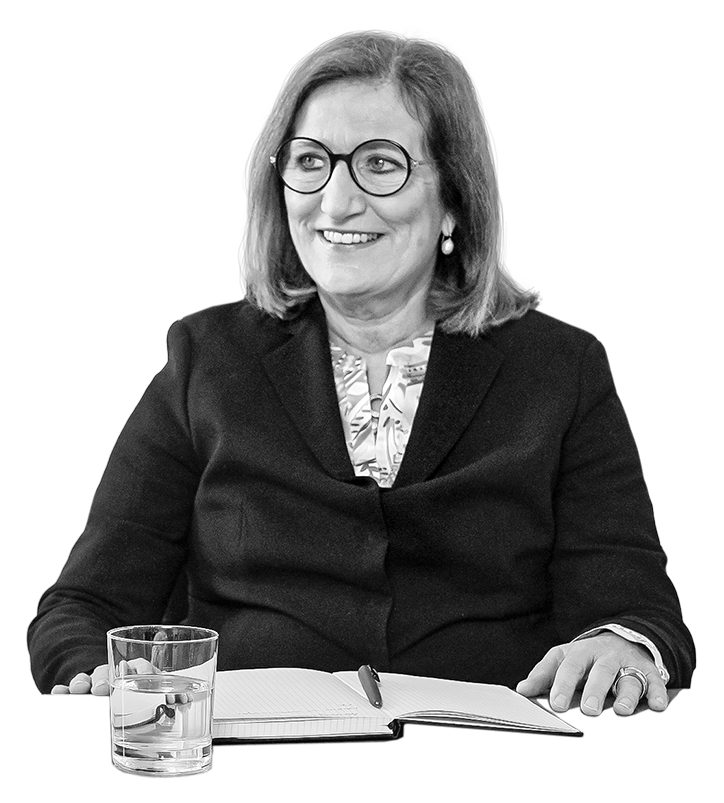
“The basis for success is always good, responsible corporate governance. Practicing this type of corporate governance is our top priority.”Dr. Claudia Mayfeld, Executive Board member responsible for Integrity, Legal and Human Resources
Claudia Mayfeld: Absolutely, the gender ratio is still far from balanced, even at Knorr-Bremse. Women who were not trained in technical professions 20 years ago are now missing as skilled workers. We need to change this or otherwise you, the millennial generation, will face the same dilemma in 10 or 20 years’ time. That’s why we are actively trying to get young women interested in technology and STEM professions at an early stage. It is also important to clarify that we have consistent framework conditions, such as equal wages, and view them as essential.
Katharina Serfas: Diversity of course involves more than just supporting women, and that applies to Knorr-Bremse, too. We must break down career barriers for all talented people. Younger people in particular have already strongly internalized this aspiration for diversity. As with all the new values, abilities and working methods, it demands further development of our corporate culture. So, what role do the younger employees have in this?
Frank Markus Weber: All employees across the world should always find themselves reflected in our corporate culture. There are currently department workshops taking place, developing on our most recent employee survey. Here, of course, I am also expecting strong impulses from the younger generation. The survey itself showed a high level of commitment to the Knorr-Bremse brand and the colleagues are proud of their work and the products.
Katharina Serfas: It also became clear where we can still improve …
Claudia Mayfeld: Definitely. One of our main tasks is to transform hierarchical processes and mindsets into personal accountability and smooth information flows. We are working on further establishing the required speak-up culture in the company. This is a task for numerous traditional corporations, and one that we are determined to accomplish.
Katharina Serfas: Another observation about corporate culture that positively surprised me personally: I was previously not aware of the professional organization behind Knorr-Bremse’s social commitment. At the Local Care initiative and in the Global Care association, I have seen some highly efficient structures. For example, the way that the Group practices solidarity in the Ukraine war, the willingness to help, the donations and the personal dedication of so many sites and people – all this impressed me.
Marc Llistosella: Teamwork makes us strong! ‘My goal is a blind one-two pass with my Executive Board colleagues.’ Those were my words on my first day as CEO at Knorr-Bremse. What is it that I want from you, Ms. Serfas, and from the young colleagues? To maintain that sports analogy, I want a smart game opening. Show me new ways and new options that take me to the goal of sustainability. Believe it or not, I am attentive and can still run with speed and endurance! (laughs)
